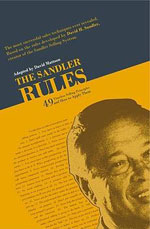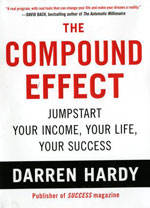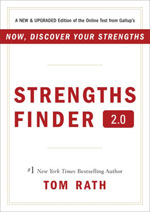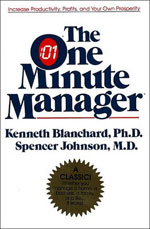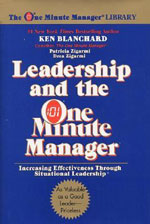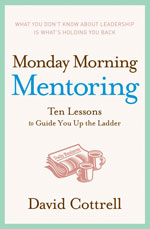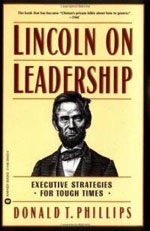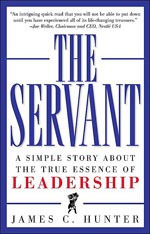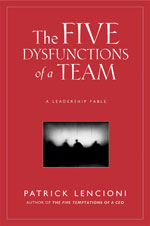 Last week we discussed how criticism can affect every part of our lives and how, if we don’t handle it well, negative feedback can ultimately derail our careers. We can’t prevent being criticized, but we can control how we react, thus turning a negative situation into a positive one.
Last week we discussed how criticism can affect every part of our lives and how, if we don’t handle it well, negative feedback can ultimately derail our careers. We can’t prevent being criticized, but we can control how we react, thus turning a negative situation into a positive one.
And guess who the biggest critic in your life usually is? You got it—you. Though criticism can come from others, it is often the strongest and most frequent inside your head. It’s much easier to point fingers at outside critics, but you must recognize that your fiercest critic usually lives between your own two ears. Working up the courage to move past your own vulnerability and uncertainty might be the greatest challenge you’ll face on the way to achieving your professional goals.
Every day we face challenges in our careers. Some are big, and some are small. People don’t fail in sales because of the economy, bad prospects, bad products, or bad markets. Those reasons are just excuses.
People fail in sales because they stop believing in themselves.
The most important thing you need in order to be successful in sales is a strong self-image. Each day in sales can bring rejection, humiliation, failure, and uncertainty, which can all wreak havoc on an already weak self-image. Many salespeople have problems in this area because they confuse their self-images with their roles in life. In order to separate the two, let’s define them both.
Let’s first talk about your role—your “R.” Roles are the labels we put on ourselves; they are what we do. Examples might include: salesperson, engineer, wife, father, manager, trainer, or business owner. Stop for a moment and think of five roles you fulfill in your day-to-day life.
As an exercise, close your eyes and imagine yourself on a beautiful deserted island where all of these roles are taken away from you. You now have no roles, no labels—it’s just you. How do you feel about yourself? With no roles attached, rate your self-worth on a scale of 1 to 10. How did you do? I bet you rated yourself close to a 10!
Now consider your “I,” your self-image. Your self-image is comprised of your values, principles, and beliefs. Examples could be: honesty, faithfulness, reliability, integrity, compassion, etc. Make a list of five values and principles that best describe you. Which of these characteristics can be taken away from you? Of course, the answer is that none of these can be taken away from you by anyone except you. Your “I” is the inner you, your castle, and nobody gets in there unless you let them. So, in the deserted island exercise, the true answer is that you are a 10 with or without your roles.
Your worth as a person is completely independent of your role performance.
Let me say that again:
Your worth as a person is completely independent of your role performance.
The problem is that, for our entire lives, we’ve been evaluated based on our roles and our performance in them. We’ve been conditioned to base our self-esteem on a good record of role performance. Unfortunately, there’s nothing like a year in the sales profession to make us all realize that we’re not as good at what we do as we thought we were. You might make two tough sales in one day, catapulting your “R” to a 10, but the very next day you might blow an easy close, causing your “R” to dive down to a two. You make 15 cold calls, and everyone blows you off; the series of disappointments causes the rejection factor to build, and you really start to doubt yourself. This is when many salespeople give up on sales or try to find greener pastures that don’t really exist.
In the tough times, remember that, no matter how you perform in your sales role, at the end of the day, your “I” is a 10 because the principles, values, and beliefs that make up the inner you have not changed.
Learn to separate your role performance from your self-image. Learn to remain emotionally detached in the selling process. Then you will be better equipped to tackle the difficult daily activities that are required to be successful—and you’ll be able to deal with the emotional roller coaster ride that sales puts us all through.
David Sandler, found of Sandler Training, proposed an enlightening way to address challenges. He simply said, “What you ‘R’ is not who you ‘I.’” Sandler believed we all enter the world with an “I” of 10—we each arrive with built-in good qualities that can lead to high self-esteem. He also believed that, along the way, through the trials and tribulations of life, we may begin to forget that we’re a 10, allowing life’s experiences and our roles—our “R”—to negatively impact our self-images. His message? Separate your “I” from your “R.”
In other words, you are who you are—not what you do for a living.
Remember this: selling is no place to get your emotional needs met! The purpose of selling is to earn a living. You’ll achieve that purpose when you realize that, regardless of how your prospects treat you and what results you get, your “I” is always, always a 10. And if you truly believe that no one gets into your castle unless you let them, you’ll live in such a way that will bring you success in sales over the long haul.








